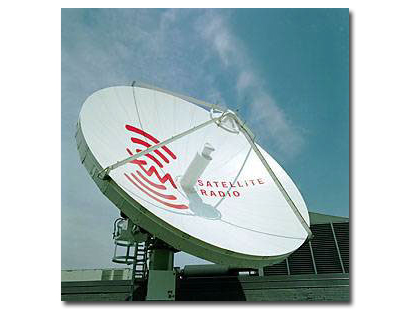|
|
 |
Knowledge Is Key
For Intelligent Decisions
Satellite Logic is a leading,
authoritative source of information in
the Satellite Industry. Located in the
heart of the Silicon Valley, Satellite
Logic provides one of the most
valuable and comprehensive
knowledge bases on the Satellite
market! This is a primary Worldwide
information center which enables our
clients to analyze, evaluate, inquire
and select their best tailored
solutions. Our company sets the
industry standards for targeted
buying leads, reflecting a dramatic
advance over traditional marketing
solutions.
|
|
|
 |

Satellite radio reception is digital quality with absolutely no static.
The quality of an FM signal can fluctuate, depending on how far away
you are from your radio stationís ground transmitter and the terrain
youíre traveling in. But satellite radioís reception is always crystal
clear, since its signal is transmitted from space. And the best part
is that the satellite radio reception is available available across the
continental U.S., so that you don't have to change your station
presets when you drive from one place to another.
To get satellite radio reception you'll need a specially designed
antenna that works with your satellite radio. You've got two options:
indoor or outdoor. Many satellite radios, especially plug-and-play
and portable, come with indoor antennas.
No matter which kind of antenna you use, you'll need to mount it in
a spot that gets the best reception. If you'd like to get satellite radio
in a room that typically can't get reception, consider adding a signal
repeater to your system.
The indoor antennas are compact antennas which are generally
mounted in or near a window in your house, preferably facing south,
so that they receive the best signal possible. Satellite radios usually
have antenna aiming features and signal strength meters, so you'll
know when your reception is the best. Indoor antennas are
convenient, inexpensive, and easy to mount.

If you can't get satellite signal in the house, consider an outdoor
antenna. It's bigger than its indoor counterpart, and designed to
resist the elements. You mount it on the side of your house, or on the
roof. Another option for sending the satellite radio signals to your
rooms is with a signal repeater. The repeater connects to a satellite
radio antenna (indoor or outdoor) that sits in the right spot for
optimum reception. It then sends the signal to a receiver antenna
that's mounted in another room. This antenna connects to your
satellite radio and delivers the signal.
Anyway, if you want to receive clear satellite radio reception, then
you will need to buy a quality antenna. There are a few things you
should consider before buying satellite radio antennas. Some of
these things include type, compatibility, and portability.
Compatibility - one of the first things you need to consider when
buying satellite radio antennas is their compatibility. There are only
two satellite radio providers, namely Sirius and XM. You need to
make sure that you buy satellite radio antennas that are compatible
with your provider. Antennas designed to pick up XM broadcasts will
not work with Sirius, and antennas designed for Sirius broadcasts
will not be able to pick up XM signals.
Type - the next thing you need to consider when buying satellite
radio antennas is their type. Some antennas are designed to be
used indoors while others are safe to use outside. Indoor satellite
radio antennas have to be placed near a window facing South to
provide quality reception. They are very cheap and easy to install.
Satellite radio antennas are usually placed on the side of the building
or mounted on the roof. They typically provide better reception than
the indoor variety. However, some outdoor satellite radio antennas
have to be installed by a professional. This is because wires have to
be run from inside of the house in order to give them power.
Portability - a very important thing to consider. Some antennas are
small and compact enough to carry around easily. There are also
some satellite radio antennas that come with a special boom box so
that you can listen to the radio wherever you go.
Strength Meter will tell you how strong the signal is that the antenna
is picking up. There are also satellite radio antennas that come with
aiming features so that you can aim the device in a direction that will
provide the best reception.
You should also make sure only to buy satellite radio antennas that
are compatible with your service provider as they aren't
interchangeable.
|
|
|
|
